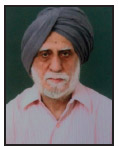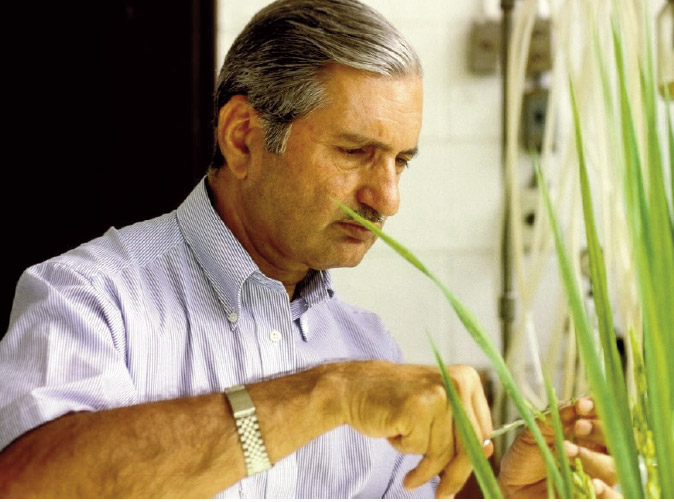
 |
INTERVIEW
"Grow alternative crops"
Question : Punjab is in the grip of severe crisis after the green revolution. All the benefits of the green revolution have been eliminated. The rural indebtedness has increased manifold and farmers are committing suicides. Dr. Khush : We never heard about the farmers suicides. This is a new phenomenon. We have also grown under difficult circumstances but such things never happened during out times. The major reason for the agriculture crisis and rural
indebtedness is the overspending by the farmers. The
farmers are buying costly tractors and other farm
equipment which are not required for small holdings.
Tractor companies should not sell tractors to farmers
who cannot afford the same and do not have collateral.
Farmers should not buy costly equipment which are
not required. Q : There is deep crisis in agriculture in Punjab. What is the solution? A : With the wheat-rice revolution, natural resources have deteriorated. Organic matters in the soil have also decreased to 0.4 per cent whereas the same should be minimum 2 per cent. Efficiency of nitrogen becomes very poor when organic matters fall. Our productivity has also become stagnant whereas it used to be 6 to 7 per cent during the green revolution days. The average yields are also stagnant now. The farmers should go in for alternative crops with value addition. Crops like hybrid maize, soyabean and mustard should be grown which have greater scope. The milk industry needs maize. Q : Prime Minister Narendra Modi has declared that he will double the income of armers by 2022. Do you think it is possible? A : I think this problem is too big. A very large number of people depend on agriculture and they live in rural areas. Land holdings are also very small. If we can move people to other areas and provide more avenues for employment, this will help in increasing the income of farmers. Contract farming can also help in increasing the income of farmers. Farmers should be encouraged to grow alternative crops with value added. Question : Do you think we can witness another green revolution ? A : I do not think there will be a repeat of the green revolution. However, there is a possibility of a milk revolution. We will not have productivity of 6 to 7 per cent in the crops. We can continue to have incremental increase in productivity but not the jump of green revolution. To enhance milk production, we can have milch cattle like buffaloes and cows to enhance the milk production. We can also export buffaloe meat along with the milk export. Question : There are reports that the Centre wants to do away with the MSP (Minimum Support Price) policy. Neeti Ayog of the Government of India has also not treated the Punjab Chief Minister and the Finance Minister well on the issue of granting financial assistance for the development of agriculture and to meet the food security. The Neeti Ayog told them : 'Forget the food security' of India. A : This is very unfortunate. Punjab has suffered and exploited natural resources to raise food production to feed the people of India. The Central Government must extend financial assistance to Punjab and should not maltreat it. The abolition of MSP will ruin the agriculture in Punjab. The Centre should encourage the growing of alternative crops like pulses, oilseeds. Mustard can be grown in a large area to have oil. We are importing and make huge payment for import of oil. We can cut down the import bill. Question : There is climate change in the world which is affecting the environment. A : The climate change is a big threat. World food situation is quite reasonable so far. We did not have any famine since the green revolution. But the climate change can cause problems. This might reduce the production and it would have serious consequences. The temperature is affecting the Himalayas. The Himalayas are heating at double the rate of normal rate. It will give water for irrigation but in the final run, this will reduce the supply of water and rivers will go dry. Question : What role PAU should adopt now in the changing circumstances ? A : The PAU should continue to look at the health of the soil. They have to incorporate the rice and wheat straw in the soil instead of burning it. Equipment is available which can help in incorporating the straw in the soils and this will add to the productivity. They should emphasis on the research of value added crops and the state government should grant financial help to the PAU. K S Chawla is a senior journalist based at Ludhiana |
|


 K S Chawla
K S Chawla Gurdev Singh Khush
Gurdev Singh Khush